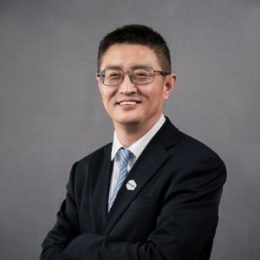
Dr. Wu Kai is a professor-level senior engineer and the Chief Scientist of Contemporary Amperex Technology Co. Limited (CATL).
With more than 20 years of extensive experience in battery research and development, Dr. Wu is committed to technological innovation and industrial application of power batteries for new energy vehicles. He has spearheaded the mass production of China’s first NCM lithium-ion battery and continues to maintain the technological leadership. He has further developed and pushed forward the mass production of lithium-ion EV batteries of high level of safety, high energy density and long service life, providing strong support for the development of the NEV industry.
In addition, he has independently developed a key set of domestic battery manufacturing equipment, which has achieved a leading position in the world in terms of efficiency, precision and consistency in production.
Session on Electrification of transport and integration with energy systems
Abstract
The initiative for a greener Earth is rapidly advancing. Creating a low-carbon economy by reducing emissions require regulations and modifications to industry standards, but more importantly, progressing under the guidance of technological innovations. Globally, the automobile industry agrees that strong developments in new-energy vehicle (NEV) and renewable energy are crucial to reducing humanity’s carbon footprint. Battery technology provides the crucial support necessary for cleaner methods of transportation.
At the “heart” of an NEV, its power battery controls the vehicle’s vital technological advancements. Energy batteries are fundamental to creating advanced electronic systems and are solutions to peaking carbon emissions and creating carbon neutrality. Power and energy batteries have numerous key characteristics: energy density, cycle life, fast-charge capability, safety, temperature tolerance, battery management system (BMS) controller, etc. They can affect and sometimes restrict each other. Besides notable design requirements, power batteries demand favorable manufacturing conditions, therefore producers must continuously enhance their technology, efficiency and quality.
Technological innovation elevates industry standards. In the past decade, a multitude of key battery improvements were formulated: the production costs of batteries were reduced by 80 percent, their energy density became doubled or even tripled comparatively, ranges of electric vehicles (EV) progressed from 150 km to 1000 km, and their battery life exceeded 12,000 cycles, etc. Globally, industry colleagues continually innovated in fields of material science, system architecture, production and manufacturing, etc. These breakthroughs fueled the rapid development of the power battery sector. By the virtue of these improvements, electrifying the world became a common goal. This led to battery energy storage rising to the forefront of the energy storage industry. In 2022, global EV market share reached 13 percent, among which 25 percent belonged to China. Globally, the total deployed renewable energy storage amounted to 45.7 GW, from which the market share of Lithium-ion battery surpassed 94.4 percent.
In the future, efforts to lower carbon footprint will proceed, and the NEV industry will enter a new transformative era, creating higher expectations towards power batteries. Innovation remains vital to realizing greater energy density, safer operations, faster charging, longer cycle lifetimes, etc. Research and development of new materials and renewal of system architecture will power the continuous growth of power batteries. Electrifying vehicles apply to beyond cars, but also to ships, planes, industrial transportation, etc. Power batteries are currently the crucial element to creating cleaner energy and transportation.